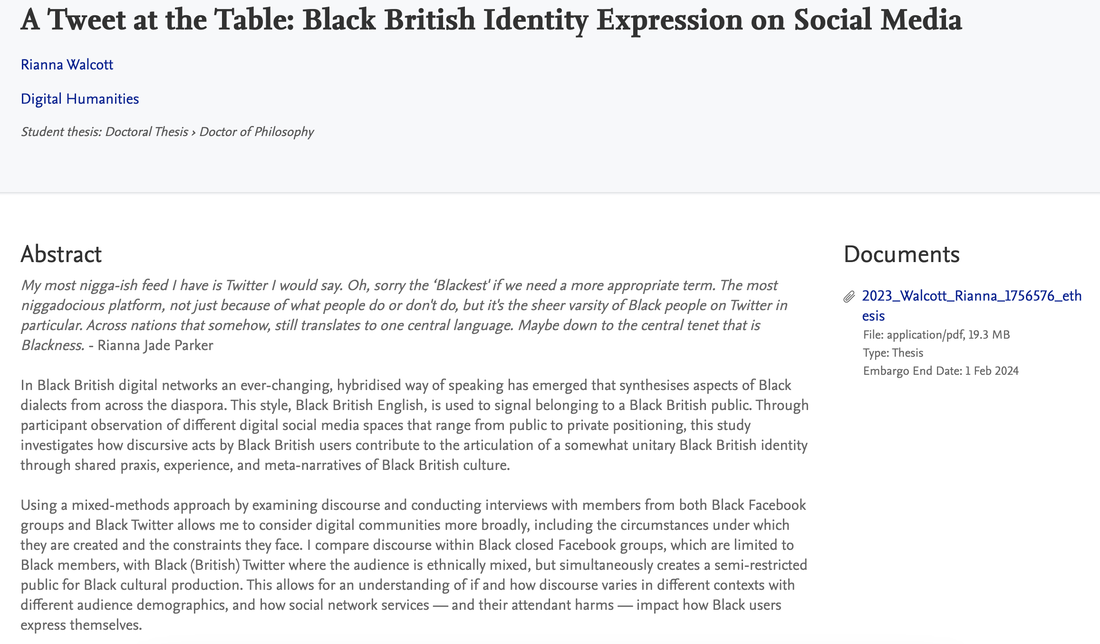|
0 Comments
This project, funded by the EDI Engagement and Contribution Fund, researches the various forms of hidden labour that are undertaken by Black staff and students at UCL and is informed by recent scholarship on the 'deliberate, intentional work' that will be necessary to create a more just institution. We have gathered this data in three ways: anonymous questionnaire, staff or student focus groups (1 hour), and individual interviews (30-minute). The project gives precedence to the lived experience and knowledge of Black (for the purpose of this research, we mean of African or Caribbean descent, including mixed) people in the academy and is led by a Black researcher; we invited all members of UCL's community - students, academic staff, professional services staff - who identify as such to share their experiences. The data and insights produced by this research form the basis of an index of hidden labour performed by already-marginalised scholars, and a set of recommendations for both redress of past labour and future transformation.
Based on an in-depth discussion between us (six Black PhD and early career researchers), this work explores burgeoning Black feminist and digital media studies in Britain. Our article is rooted in dialogue about Black feminist digital culture, communications, aesthetics, joy, and our different yet interconnected scholarly experiences. We consider who and what shapes the work that we do, the way we approach it, and how it has developed in recent years.
Ashwin 0:16
Hi, everyone. Welcome to this conversation about ethnography that we're lucky enough to have with Rianna Walcott. Rianna is one of the PhD students in our department, and has been doing really interesting work, studying black communities online in Britain. Rianna, welcome and thank you for being with us today. But yeah, just to get a start Rianna, maybe you could tell us a little bit about your research. First of all, interviewing has been really fun. It's been definitely the most entertaining part of the process. I think it's been really wonderful to have a list of interview questions that I don't feel deeply tied to. I've been very intuitively following the method of looser interviews that don't necessarily follow a set format, but instead happened quite organically, led mainly by what the research participant says, and common experiences.
https://orcid.org/0000-0002-2261-8616
A Tweet at the Table: Black British Identity Expression on Social Media In Black British digital networks an ever-changing, hybridised way of speaking has emerged that synthesises aspects of Black dialects from across the diaspora. This language is used both as part of a performance of self and to signal belonging to a Black group identity, as linguistic choices are a way that online actors are able to curate their narratives of self-representation. Through observation of different digital social spaces, this study will investigate how language is disseminated between geographically and culturally disparate people who self-identify as Black, and how linguistic acts of performative identity that Black British people use contribute to the articulation of a group Black identity through shared language and experience. |
|
||||||||||||||||||||||||||||||||

